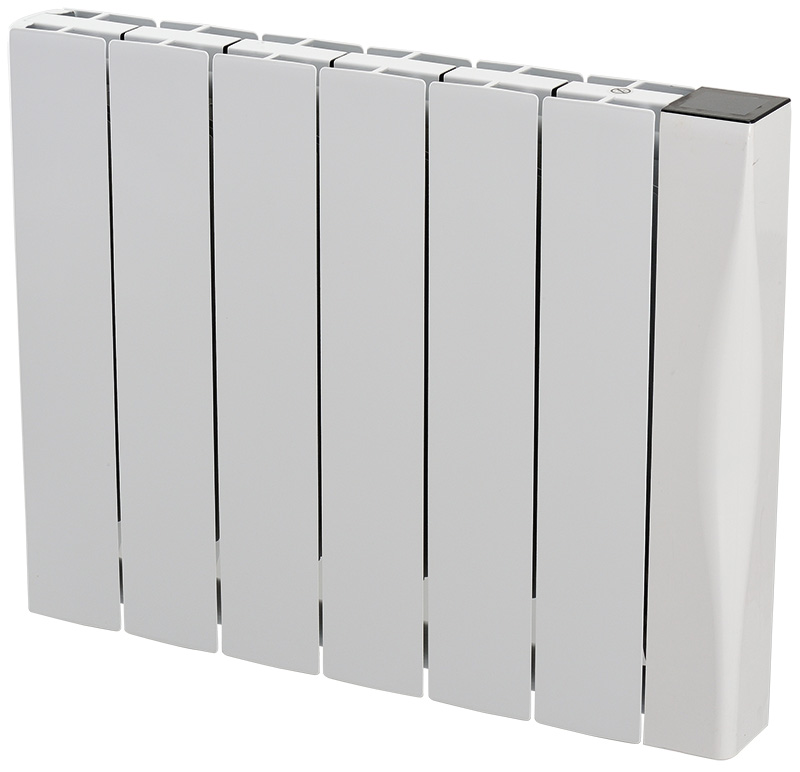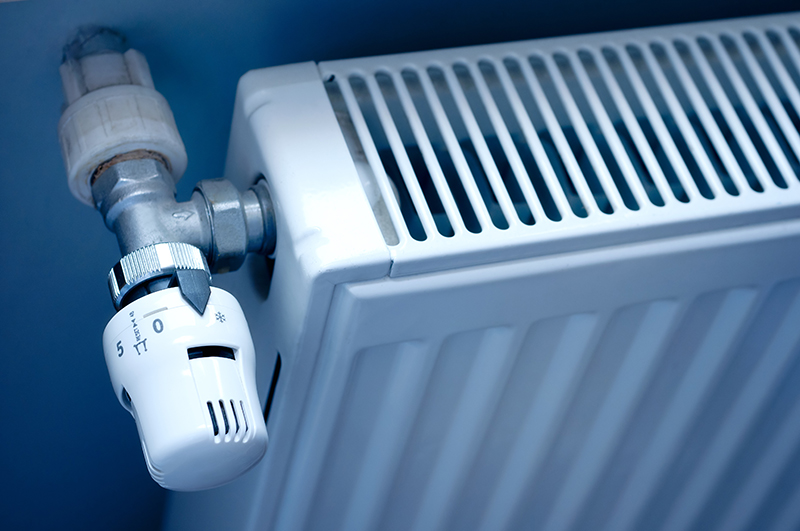Electric vs Gas Central Heating: Which Is Best?

Published: Thursday, 09 February 2023
Over the years, gas has been the most common heating source used across the UK, but with recent advancements in heating alternatives such as electric, the nation is slowly shifting away from gas heating.
For many years gas has been considered the cheapest way to heat a property. However, gas heating has largely remained the same while electric heaters have evolved overtime to offer a number of benefits. Here at YESSS Electrical we've put together this guide to help you understand the advantages and disadvantages of both gas and electric central heating.
Gas Central Heating vs Electric: What’s the Difference?
Gas heating systems rely on a boiler to burn the fuel (gas) and heat up the water. With a gas central heating system, hot water is circulated around the radiators in your home to provide heating through what’s known as convection.
Electric heating is powered by the electricity in your home. Electric heating systems rely on separate heating appliances in each room. Using electricity to produce heat instead of gas, electric heating is considered to be 100% efficient.
Pros and Cons of Electric Heating
So, now you’re aware of the difference between gas and electric heating, let's begin by taking a look at the advantages and disadvantages of electric heating.
Advantages of Electric Heating
The main advantage of electric heating is that 100% of the energy is transferred into heat, with no carbon dioxide output. But, what else is beneficial about electric heating?
- Electric heating offers lower maintenance costs unlike boilers in a gas central heating system which require regular checks
- You can manage your heating efficiently using smart heating controls
- You can opt for an affordable energy tariff to help you pay less for your electricity during off-peak times
- Installation is cheaper than a gas central heating system and does not require a flue or pipework
- It is safer than gas as it does not use fuel to produce heat, minimising the chance of carbon monoxide poisoning
- It is a clean and sustainable heating option with less impact on the environment
- With electric heating, you can turn on one radiator instead of the whole central heating system to heat up a single room
Disadvantages of Electric Heating
So, what are the disadvantages of electric heating? Here’s some.
- The cost of electric heating can be more expensive than gas depending when you use it (during off-peak or peak hours) and which energy tariff you are on
- Electric heating can take more time to heat up, with the system often taking longer to kick in
Electric heating is constantly growing in its capabilities. Currently, there are a large variety of products available on the market. Here at YESSS Electrical, we have a wide range of high-quality storage heaters and electric radiators from trusted brands such as Osily and Elnur.

Pros and Cons of Gas Heating
Now that we've explored the benefits and drawbacks of electric heating, let's take a look at the advantages and disadvantages of gas central heating.
Advantages of Gas Heating
Gas central heating is a low cost option that tends to heat up your space quicker than an electric heater. But, what other benefits does gas heating offer?
- Gas heating often costs less to run than electricity
- You can control your gas heating using a smart thermostat
- Modern gas boilers are now more efficient than older models
Disadvantages of Gas Heating
But, what are the disadvantages of gas heating?
- Gas heating installation is more costly than electric
- Gas boilers are more expensive to maintain and replace
- Gas heating is not 100% efficient like electric
- Gas releases greenhouses gases when burnt which contribute to global warming
- Old boiler systems can be dangerous and leak carbon monoxide which is deadly
- Upgrading to a new, more efficient boiler can be expensive
With the ban on gas boilers coming into place in 2025, the use of gas as a heating source is slowly decreasing in popularity. New advanced alternatives such as electric tend to be favoured, offering a more efficient and sustainable way to heat a home. With that in mind, let’s take a look at what impact gas and electricity have on the environment.

Which is Better for the Environment - Electric Heating or Gas?
With environmental concerns growing, people are now more aware than ever of the need to switch to a more sustainable heating system. With that in mind, which is better for the environment - electric heating or gas?
As previously mentioned, gas is a fossil fuel which can contribute to global warming and climate change. When gas burns, it produces carbon dioxide, also referred to as CO2, (a greenhouse gas) which contributes to air pollution. Overtime, greenhouse gases alter the earth’s climate causing intense weather events, also known as climate change.
Electricity, on the other hand, is a cleaner heating option. Electricity is 100% efficient and does not produce any waste gases, minimising air pollution and the risk of climate change. Therefore, electric central heating is considered the best option for the environment which is why there is now a gas boiler ban in all new homes from 2025 to help the UK reach Net Zero carbon emissions.
Which is Best for Me - Gas or Electric Central Heating?
Gas central heating is a quick and affordable way to heat your home while electric heating is incredibly eco-friendly and perfect for those who want to avoid high maintenance fees. Both gas and electricity have their advantages and disadvantages so deciding the best option for your home depends on a number of factors including the type of property you live in, your budget and the requirements of those living there.
If you’re considering switching to electric, here at YESSS Electrical we’re guaranteed to have the perfect heating solution for you. From storage heaters to electric radiators, we have a range of reliable electric heating products for sale. Shop online with us today or contact us on 01924 227941 for more information on switching to electric heating.

